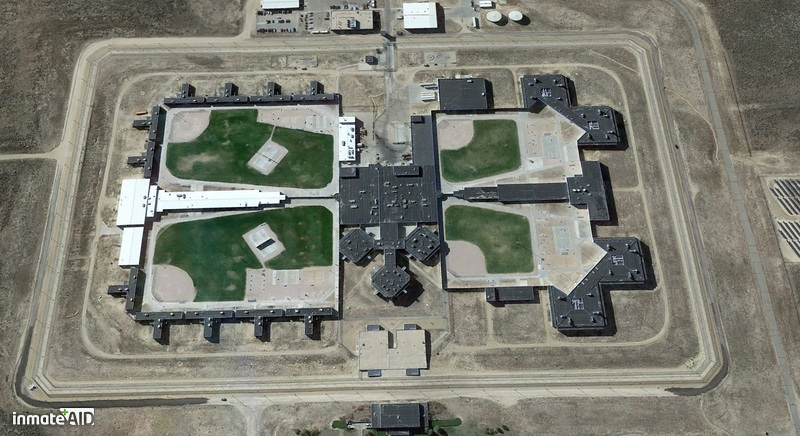
Courtesy of Michael McCarthy

Audio By Carbonatix
I’ve been in and out of prison most of my life. My latest conviction resulted in an eighteen-month sentence for identity theft. I would rather have stayed in prison and discharged my sentence than be released on parole. But I was granted parole release on January 21, 2020.
I am a nonviolent offender with a history of absconding and financial crimes. My track record on parole is horrible. It’s been like the movie Groundhog Day for the past twenty years.
The excitement of getting released from prison wears off rapidly. I was reminded of that on February 25, when I was released from the Sterling Correctional Facility. On the bus into Denver, I listened to other prisoners talk about what their first meal would be, when they’d have sex, and how some couldn’t wait to get high.
I was released from prison homeless, with absolutely no money. First-time released prisoners receive gate money of $100; re-offenders get only the money on their inmate accounts. Everyone is expected to create their own parole plans.
Before this, the last time I was released, the parole officer had me go to Alliance, an ankle-monitor administer, which slapped a bleeping (literally), talking (literally) and sometimes screaming (literally) GPS ankle monitor on me.
“Call your officer now. Call your officer now,” the device ordered in a loud, robot-like command. I was outside Union Station at 5 p.m., just a couple of hours after my release. I had no money and no cell phone, and I did a little circle-like panic dance as the monitor barked its order. People were pointing at me and swooping up their kids.
I went into Union Station to find a pay phone. No luck. Then I crossed the street to the Tattered Cover, where I explained my dilemma to the desk manager, who let me use her phone. While the ankle monitor continued to bleep and talk, I was put on hold for 45 minutes without anyone ever picking up.
Something inside me just snapped. I was like: Nope, I refuse to be free but not free.
I called a friend on the run from prison to come pick me up, then cut off the ankle monitor and discarded it with a high heave over an embankment on Interstate 25, releasing it from the insanity that was sucking the life out of me. (Years earlier, I’d cut an ankle monitor off in the South Building of the Auraria Campus, depositing it in a restroom toilet. It wouldn’t fit down the drain; it kept talking as I left.)
Once the monitor was removed, I was off and running – a reluctant fugitive in survival mode. The end result: I landed back in prison.
I’m no sex offender or terrorist. I have zero violent offenses. Why should I have to wear a device that humiliates me and frightens the public? For me, that’s the worst part of the sentence.
At my parole board hearing in January, I said that if the board sent me back into society with no money, homeless and on an ankle monitor, it would be a “beast” for me to successfully complete parole. I told the members that I would rather stay in prison, work on the egg farm (an outfit with a prison contract where some prisoners were earning $16.25 per hour) and discharge my sentence in October, when I could leave with money.
Instead, I was granted parole that day and scheduled for release from prison a month later.

The Colorado Correctional Facility in Sterling.
inmateaid.com
I immediately wrote the head case manager at Sterling, requesting to self-revoke my parole and work until my original sentence discharge date in October.
“This is not an option for you,” she wrote back.
Since my release this week, I’ve just tried to survive, find housing and land a job. Without the help of a close friend, I would already would be back in prison.
While placed on intensive supervised parole, this time I wasn’t required to wear an ankle monitor. But I am expected to obtain housing and a job as fast as possible, and fend for myself in shelters until I can get into transitional housing or my own apartment.
I did manage to land a job starting April 1, and am in the process of obtaining housing through a military veterans program.
Still, it’s difficult to fathom why the Department of Corrections will invest upwards of $40,000 a year to incarcerate an offender, and then offer practically nothing in the way of services upon his release. Secured housing for a parolee’s first ninety days on the outside should be a given. As it is, prisoners have to possess upwards of $5,000 prior to their release in order to successfully transition back into society. Ankle monitors should only be used on parolees who pose an extreme risk of violence and on sex offenders.
Having parolees succeed serves everyone’s best interest.
I fully realize that it’s up to me to succeed. But the system shouldn’t complicate the process.
Michael J. McCarthy is now on parole in Denver.
Westword occasionally publishes essays and opinion pieces on matters of interest to the Denver community. Have one you’d like to submit? Send it to editorial@westword.com.